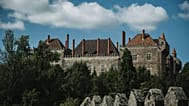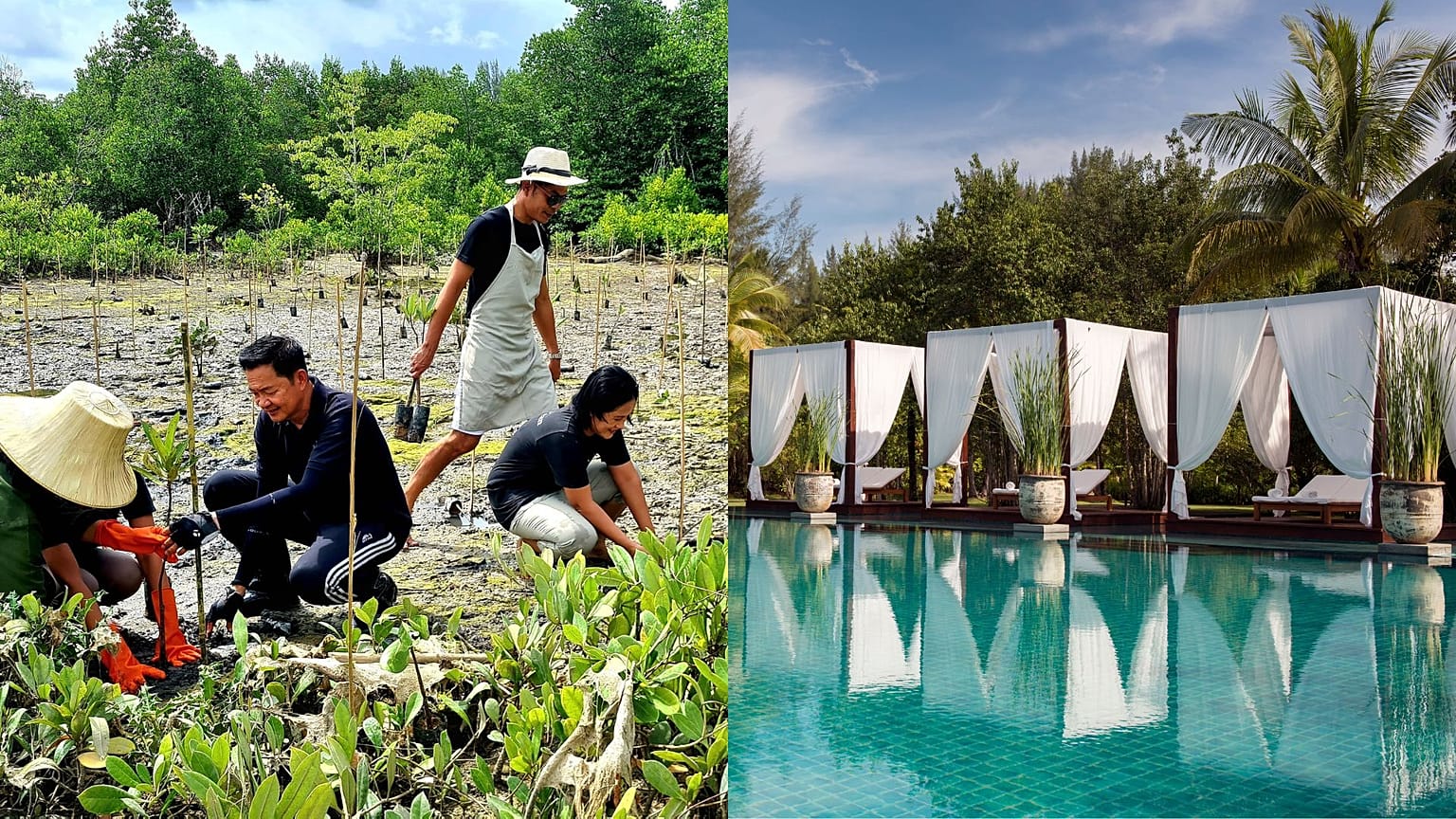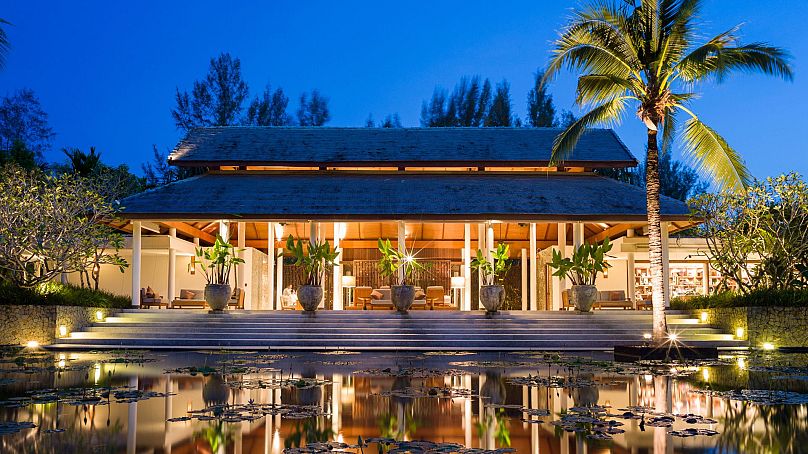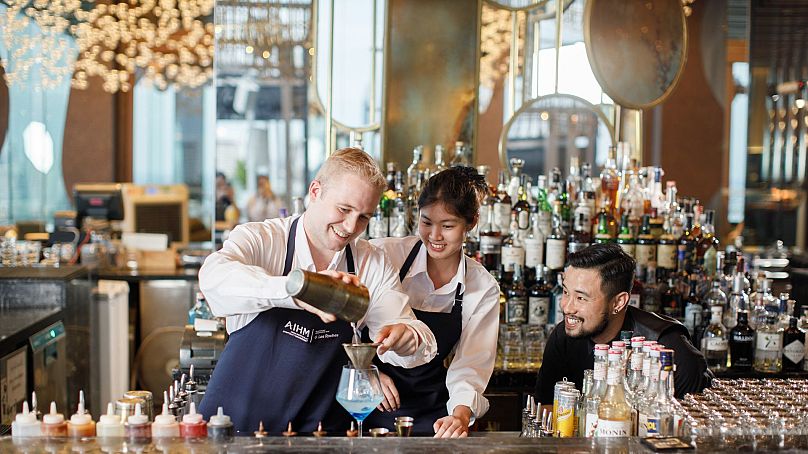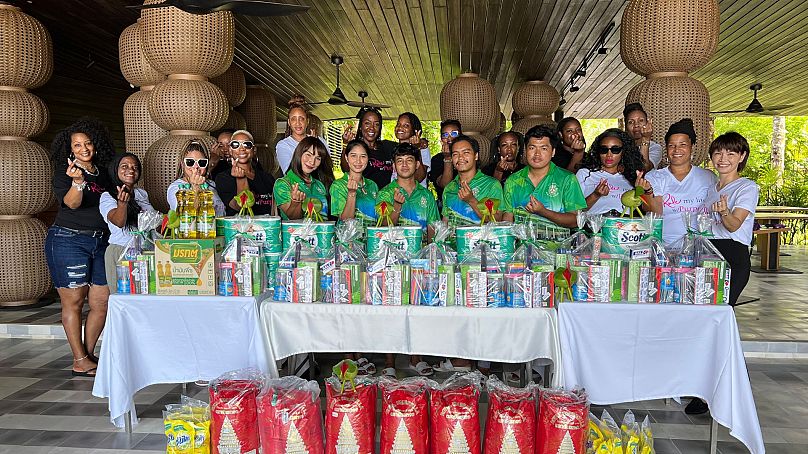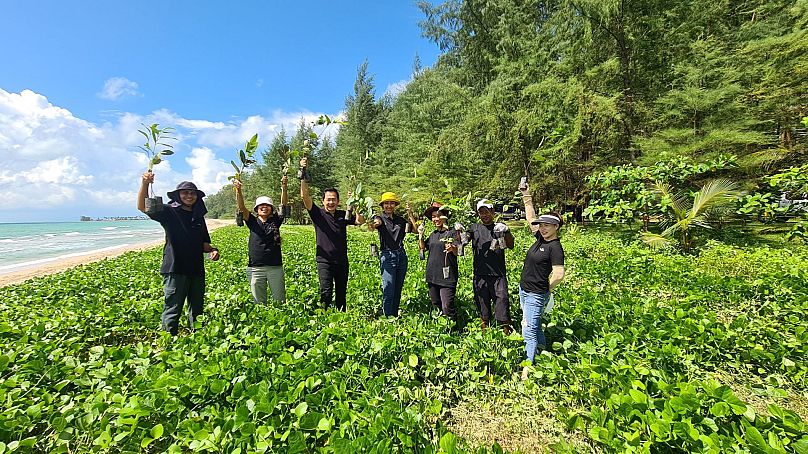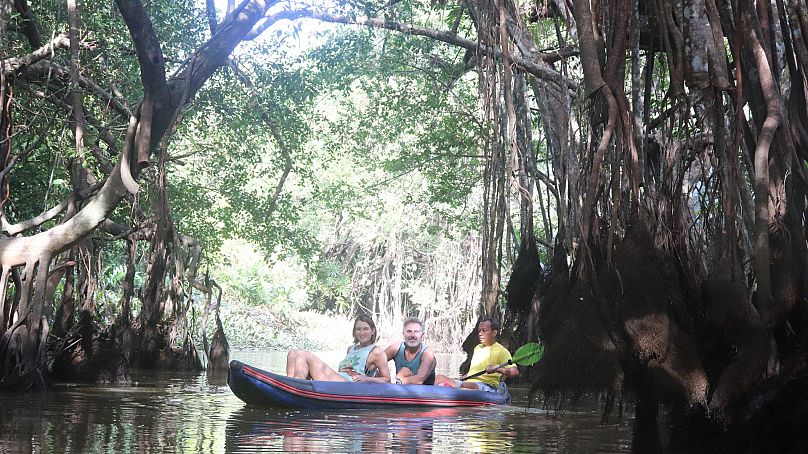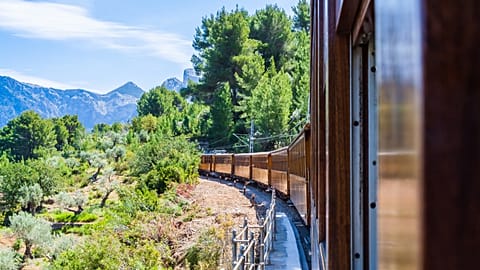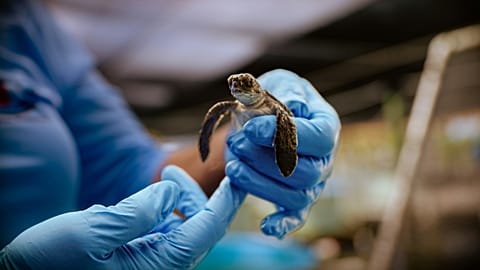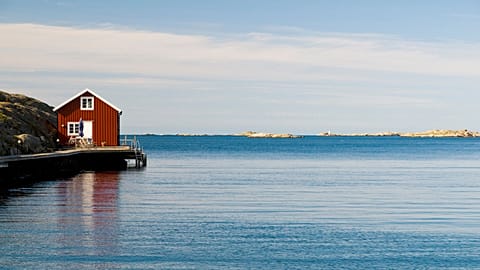The Sarojin is a shining example of community-based tourism.
The Sarojin almost didn’t exist. After six years in the making, the boutique beach resort in Thailand was two weeks away from opening when disaster struck: the massive tsunami and earthquake that hit south-east Asia on Boxing Day 2004. The hotel’s structure remained intact but the 10m wave that swept through the beachfront resort took everything else.
 ADVERTISEMENT
ADVERTISEMENT
 ADVERTISEMENT
ADVERTISEMENT
In the space of a few hours on that fateful morning, The Sarojin went from brand new hotel to integral part of a devastated community. Over the following days it transpired that Khao Lak, the coastal town where the hotel is located, was the worst hit place in Thailand. 4,000 people from the town died, including one of the hotel’s staff.
Necessity is the mother of all invention
After realising what it would take to rebuild the resort, The Sarojin’s owners had a tough decision to make: they could only afford to pay the staff or the construction crew. So the staff made it easy for them: they would do it all.
Front of house staff became project managers, housekeeping shopped for furniture and eventually the hotel was restored. In honour of the staff’s ingenuity, each of the Sarojin’s ‘residences’ is named after one of the team members who helped with the rebuild.
Fast forward 16 years and this spirit of multitasking led to the hotel being able to reopen after Thailand’s prolonged COVID lockdowns. Resident Manager-Operations Khun Kade tells me they do a lot of “cross training” between departments. So when they had lost staff due to the pandemic, drivers became waiters and the accounts team helped out on the bar.
How to learn Thai over breakfast
Small touches like individually named rooms are what I’ll remember from my stay at The Sarojin. Every morning at breakfast there’s a paper on your table telling you the “auspicious colour of the day”, a few Thai phrases to try out and titbits about wildlife and trees you might spot around the resort. Among the more than 100 species of trees and plants, I loved knowing what to look out for.
These small touches encourage you to interact with the environment, to really get familiar with it. This extends to the warm reception. “The staff welcome our guests like they welcome guests into their own home” says Khun Kade, who joined the hotel as a front office manager and worked his way up.
Every single staff member smiled and said hello as I walked past them in the resort’s large grounds. The front desk cheerily greet you with “Welcome back!” when you return from a day out. Ultimately, it felt like the staff enjoy working here. It just goes to show that treating employees well pays off in spades in the guest experience.
Providing skills and training is the way to help communities level up long term
With the hospitality staffing crisis which began last year showing few signs of abating in 2023, hotel owners could learn a thing or two from The Sarojin. For starters, they employ locally. 70 per cent of the staff were born in Khao Lak and 100 per cent are Thai.
This means no foreign general manager or head chef as is often the case at foreign-owned hotels. This has been the norm for decades but it’s high time it changed.
If hotel owners find that locals don’t have the necessary skills, they can train them - this is true and lasting investment in a community. It can be done at the local level like at The Sarojin. Or on a wider scale like Minor Hotels setting up a hotel school in Thailand.
The Asian Institute of Hospitality Management (AIHM) is designed to give students the same quality of hotel training as they would get in Europe or the US without the need to travel abroad. This is achieved through their partnership with Switzerland’s Les Roches, widely thought to be the best hospitality school in the world. At AIHM, students can train to work in every hotel department from marketing and accounting right through to food and beverage.
This democratisation of hospitality education is a win-win: Thailand’s workforce levels up and the industry has access to high quality staff locally. The AIHM courses also include internships at Minor hotels, meaning students get hands-on experience at 5* hotels and Minor grows its talent pool.
Supporting local projects in a practical way
Employing locally also has practical advantages like employees not having long commutes. On a deeper level, it means they are proud to work somewhere that contributes to their hometown.
Many hotels offer excursions into the local community but The Sarojin takes it one step further by directly contributing to the places you’re taken to. We visited a local orphanage which the hotel supports by giving internships to some of the teenagers and inviting guests to donate.
They also run monthly ‘Sarojin Cares’ days when the team, and guests if they wish, participate in a local environmental or community activity like cleanups or maintenance in the nearby national park.
Planting our own mangrove trees was the best way to round off the holiday
On our last day at the hotel, we took a mangrove tour with Khun Jack. He is Activity and Discoveries Manager having joined the business as a kitchen hand, proof of how the hotel trains and promotes internally.
As with all Sarojin excursions and transfers, we were driven in one of the hotel’s slick 4x4 cars, complete with Wifi, cold drinks and a refreshing towel. A lovely sanctuary given the beating hot sun.
I wasn’t sure what to expect from the tour but it turned out to be a gorgeous way to start the day. We were taken out on a canoe on a narrow river. It had been an early start but it was worth it to be the first boat out on the water.
Khun Jack had his binoculars out and turned out to be an expert at spotting wildlife amongst the canopy of trees that enveloped the river. I loved watching a family of monkeys using the trees as ropes to jump from one side to the other, squawking as they went. A lizard was another great spot that we wouldn’t have seen without Khun Jack’s trained eye.
Halfway down the river, we pulled over to a muddy river bank and hopped out. Our guides had a surprise for us: we would be planting our very own mangrove trees.
Mangroves are the wonder kids of the natural world. They have incredible carbon-absorbing abilities and their complex root systems mean they can survive extreme weather like hurricanes, thereby protecting coastal communities.
After Khun Jack had dug a shallow hole, I carefully placed my spindly tree into the earth. As I patted down the soil around it, I wished it a long life.
Along with these canoe tours, The Sarojin supports the growth of a local mangrove forest by planting one tree for every booking. One booking one tree is thankfully becoming more common in the hotel industry but there’s often little transparency about where or when the trees will actually be planted. Whereas The Sarojin’s mangrove trees are in a local fishing village, thereby helping to protect the coastline and all the livelihoods that depend on it.
All in all, The Sarojin is a shining example of community-based tourism. Do hotels have an obligation to contribute to the community they’re part of? Sadly not. But The Sarojin’s owners say they’re driven by the concept that “we use this land for the business so we have a responsibility to give back, too.”
As I fondly look back at my holiday snaps of The Sarojin’s white sand beach, I hope this piece of paradise will stay in the care of these respectful guardians.
Ruth Wright was part-gifted her stay and experiences at The Sarojin.

